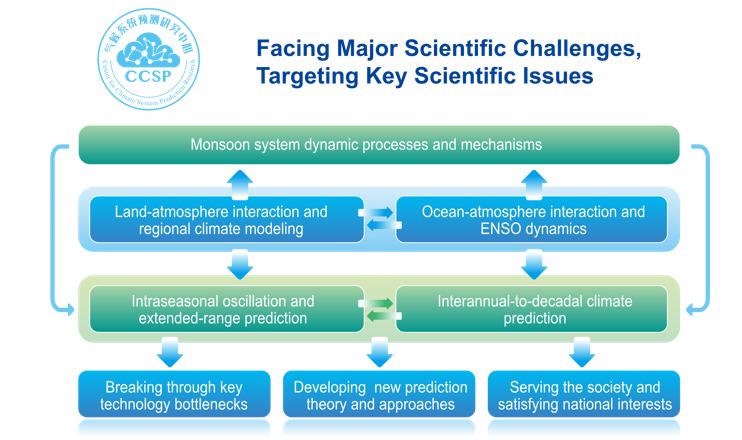Reviewed by Alex SmithSep 1 2021
Human beings have been facing climate change and meteorological disasters, which have now turned out to be a major problem.
 Research framework of CCSP. Image Credit: Center for Climate System Prediction Research.
Research framework of CCSP. Image Credit: Center for Climate System Prediction Research.
Due to global warming and the consequent extreme climate and weather events, meteorological disasters have resulted in deteriorating global socioeconomic damage over the past few decades.
A report from the United Nations states that between 1998 and 2017, disaster-hit countries faced direct economic losses of US$ 2908 billion, of which climate-related disasters accounted for 77% of the total. The economic losses caused by extreme weather and climate events increased by 151% when compared to 1978–1997.
Effective climate prediction is considered to be vital in decreasing the damage caused by weather and climate disasters. Although the World Climate Research Program has been in place for four decades and has taken great measures to enhance climate prediction, there are still several difficult problems.
This involves both the theory and approaches of climate prediction, which are connected to the climatic variability at different time scales (for example, seasonal, intraseasonal, interannual and interdecadal time scales) and the interactions among land, ocean, atmosphere and cryosphere. Due to the associated problems, the climate prediction precision fails to satisfy the requirements of the community at present.
In order to understand the predictability of the climate and to enhance the forecast of climate anomalies, the Center for Climate System Prediction Research (CCSP) was co-established in 2020 by Nanjing University of Information Science and Technology and Sun Yat-Sen University.
The center was set up with financial support from the National Natural Science Foundation of China. CCSP’s research framework was recently introduced in the journal Atmospheric and Oceanic Science Letters.
CCSP focuses mainly on three scientific problems related to climate prediction: El Nino—Southern Oscillation (ENSO), extended-range weather forecasting, and interannual-to-decadal climate prediction.
Huijun Wang, Professor and Principal Investigator, CCSP
Wang is also the director of the CAS Climate Change Research Center.
In the topics involved, the center intends to address several scientific frontiers, such as the dynamical theory of the monsoon system, tropical air-sea interaction, ultra-high-resolution land-surface process modeling, intraseasonal oscillation and interannual-to-decadal climate predictability.
Discoveries made in these areas might enhance the level and precision of climate prediction and thus offer essential technological support for adaptation to climate change, disaster prevention and mitigation and the development of ecological civilization.
Journal Reference:
Wang, H., et al. (2021) Predicting climate anomalies: A real challenge. Atmospheric and Oceanic Science Letters. doi.org/10.1016/j.aosl.2021.100115.